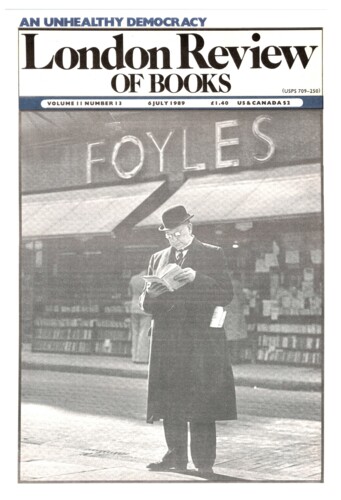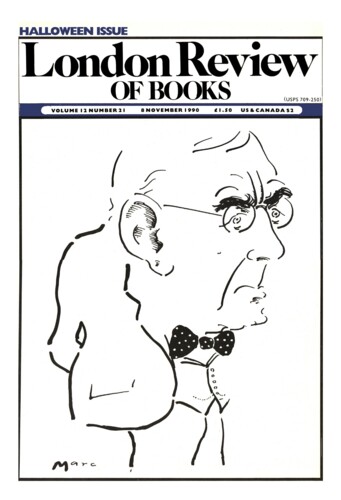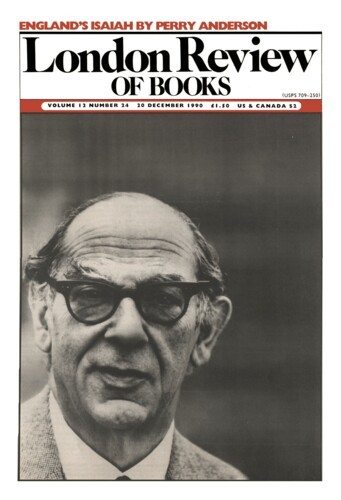Societies
Perry Anderson, 6 July 1989
Under a flat, anonymous title and in serial guise one of the most exotic – even flamboyant – intellectual projects of recent years is coming to fruition. The first volume of W.G. Runciman’s Treatise on Social Theory, devoted to the dry topic of methodology, set out in reasonable and moderate tones an agenda for social understanding combining – in so many words – ambitions of a Ranke, a Comte, a Proust and a Hart: to report accurately, to explain scientifically, to re-create imaginatively, and to judge impartially and benevolently. Perhaps the most striking feature of this programme was its association of two aims normally reckoned antithetical: an explanatory structure continuous with the natural sciences and an imaginative recapture modelled on literary fictions. Few practitioners of the social sciences have the confidence to invoke the ideals of Herbert Spencer and Henry James simultaneously.’



